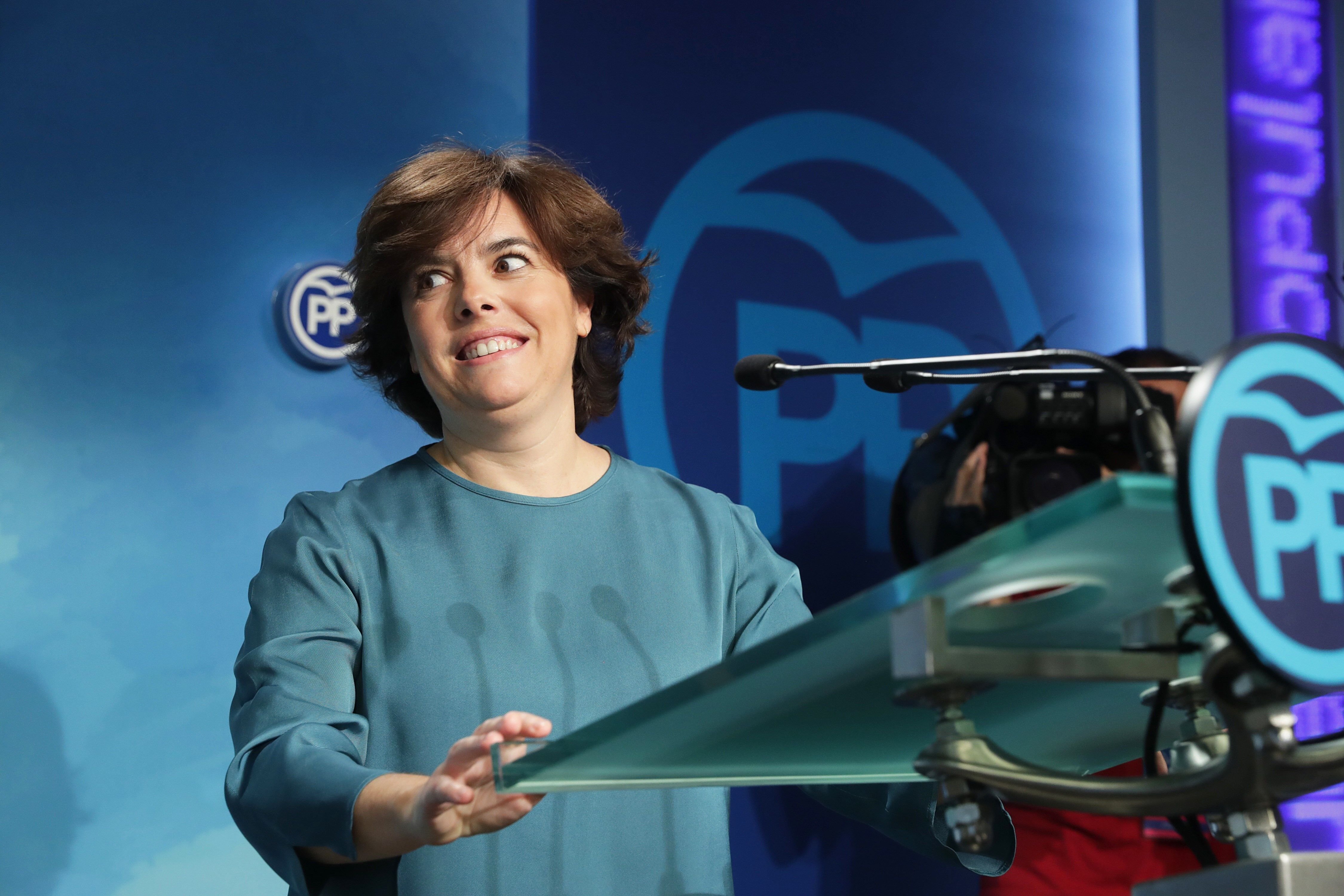The primary elections held this week to elect a new leader for Spain's Popular Party (PP) have turned into a contest to see who can be the most reactionary, the farthest to the right and, especially, who can be the most belligerent towards the Catalan independence movement. And the result has been a draw. Soraya Sáenz de Santamaría and Pablo Casado are both equally barbarous and it doesn't make much difference which of the two finally gets the top job. The Spanish right is a political animal capable of systematically repeating the same strategic mistake. Its inner beast forces it to do so: it radicalizes itself and, next thing, it loses the elections.
Manuel Fraga Iribarne, the first leader of Spain's right in the post-Franco era, was incapable of winning elections even when its opponent, the UCD of Adolfo Suárez, dissolved. His conservative extremism led to fourteen years of Socialist (PSOE) majorities. José María Aznar finally won for the PP in 1996 not so much on his own merits but because the corruption and the scandal of the dirty war fought against ETA terrorism made it impossible for the Socialists to continue in power. Even so, the PP won by a difference of only 300,000 votes. Aznar saw himself forced to "speak Catalan in private", as he put it at the time - he had to come to an agreement with the largest Catalan party, CiU, led by Pujol, with the Basque Nationalists under Arzalluz, and with the unions too. The fruit of that period, so centrist and centred, was that in 2000 the PP won the next elections with an absolute majority. At that point their 'fighting spirit' raised its head again, and in 2004 they lost to Socialist leader José Luis Rodríguez Zapatero. The PSOE did not lose until 2011, and that wasn't due to the merits of the PP either, but rather, the Socialists were defeated by the economic crisis like all incumbent governments of that period. And Mariano Rajoy has now radicalized the right once again and he has not even been able to finish his mandate. So, whether with Soraya SS or Pablo Casado, the PP is not in government and is not expected to be.
The radicalization of the Spanish right is the best news for the Socialists. When the right loses the centre, it is the PSOE who takes advantage
From this point of view, the radicalization of the Spanish right is the best news for the Socialists. When the right loses the centre, it is the PSOE which takes advantage of this, and in fact, has always felt more comfortable just administering the status quo without bothering anybody. However, the problem is that the bi-partisan division of Spain between the two largest parties is not what it used to be, and absolute majorities are now unattainable. To keep on governing, the PSOE will need external support and will have to choose between carrying on with a majority based on the current grouping (PSOE, the left-wing Podemos, Basques and Catalans) or allying itself with the other right-wing party, Ciudadanos (Cs).
It is hardly necessary to say that Podemos and the Basque Nationalists will move heaven and earth to prevent the access of the neo-Falangist Cs led by Albert Rivera to the Spanish government. It is not so clear, however, what the pro-independence Catalans will do. One thing is to support a no-confidence motion against Mariano Rajoy and another very different proposition is to support a Spanish prime minister who has a priority of preventing the Catalan independence movement from achieving its goals.
These are the million euro questions: Will the Catalan independence parties prefer a PSOE-Ciudadanos government? Will these parties, ERC and PDeCAT, be willing to withdraw if the decisions of the Spanish government do not move forward their vision for Catalonia? Will they be able to involve themselves and yet at the same time maintain their road map towards independence? Yes, against Rajoy, everything was easier, but however you choose to look at it, these are decisions that will determine the future course of the independence process.

